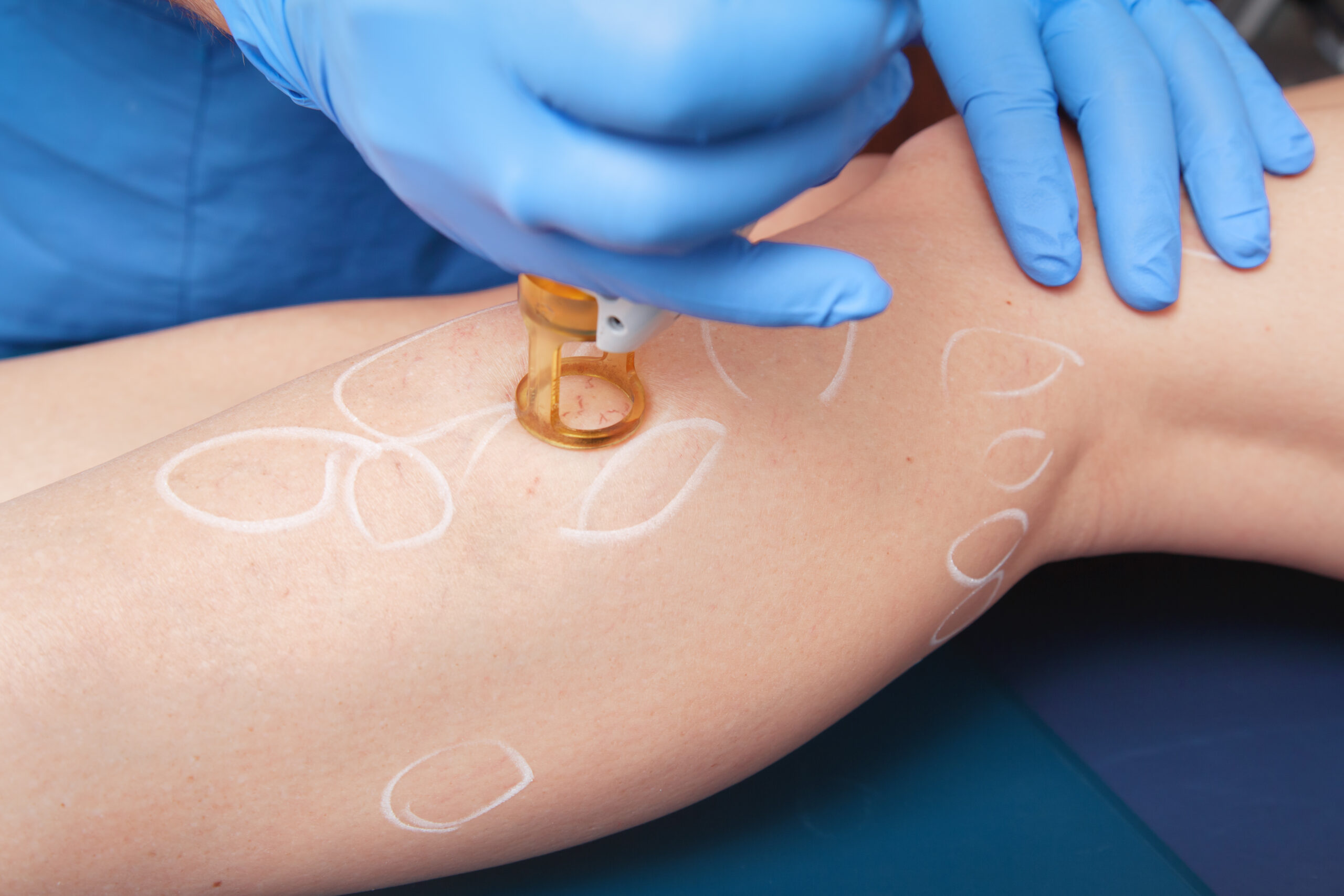Vascular specialists are specifically trained to diagnose and treat vascular conditions such as varicose veins, aortic aneurysms, carotid artery disease, deep vein thrombosis, and peripheral artery disease (PAD). Of course, any time you choose a doctor to trust, the decision is important. But when dealing with the health of your veins, finding a vascular specialist who’s knowledgeable, confident, skilled, and capable is vital to your future health. While you can see your primary care doctor for vein-related issues, a vascular and vein specialist is someone who’s dedicated their life to specifically treating venous health concerns and will know much more about venous insufficiency than a general practitioner.
Once you decide you want to take your condition to a vein specialist, you might go a step further and search for a specialized vascular surgeon, who is a specialist with the knowledge to diagnose your specific problem and the understanding of the optimum treatment available to correct it. While there are now many viable, non-invasive treatment options, there’s no one-size-fits-all solution. The doctor you choose should be committed to taking adequate time and conducting extensive testing to develop the best treatment plan for your unique venous insufficiency.
Begin by asking your primary care physician for referrals. You can also ask family and friends about experiences they’ve had with local vein specialists. Then check that your insurance covers the specialist they recommend. Read some online reviews and visit some websites. Look to see if the specialists you’re considering are board certified or fellowship trained, which tells you they’ve gone beyond the basic schooling and are accountable to a higher standard of care.
After that, it’ll be time to visit some clinics. Because treatment can be stressful, look for an office that’s comfortable, with a staff that makes you feel welcome and at home. Ask how they’ll analyze your condition. What diagnostic equipment will they use and why? How will they determine the best treatment for your unique case? The specialist should take the proper time to run tests and discuss your symptoms with you at length.
Look for a specialist who’s committed to exploring all non-invasive options before discussing surgery. Except in rare cases, vein stripping has become a thing of the past. Newer treatments are minimally invasive with little pain, reduced stress, and minimal recovery time. Some of the non-invasive treatments a specialist might recommend are endovenous laser treatment, ultrasound-guided foam sclerotherapy, spider vein sclerotherapy, and veinlite sclerotherapy. Unlike older methods of treatment, these procedures involve minimal discomfort and don’t require long hospital stays. They address venous problems without leaving scarring, so patients aren’t trading in one visible condition for another. And patients are usually back on their feet and enjoying life the same day.
Seeing a specialist about your venous health concerns should be a productive, comfortable process that ends in the best results possible for you. Take the proper time now to find a specialist who’ll deliver the venous treatment you need and deserve.

